Recent Events
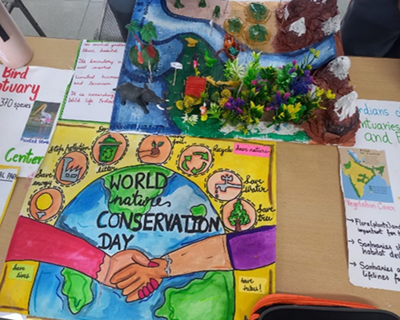
28 Jul 2025
World Nature Conservation Day Celebration
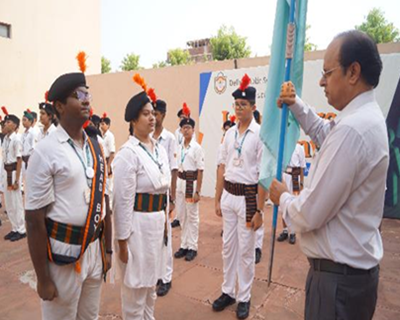
24 Jul 2025
Investiture Ceremony
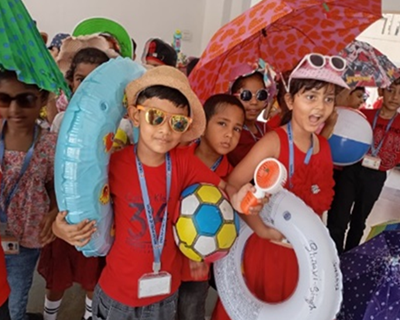
17 Jul 2025
Seasons of Fun
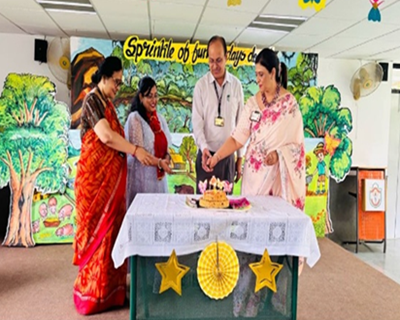
15 Jul 2025
Hundred Days
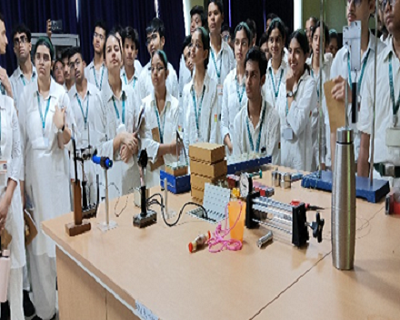
14 May 2025
Exploring the Frontiers of Science A Visit to IIT Patna
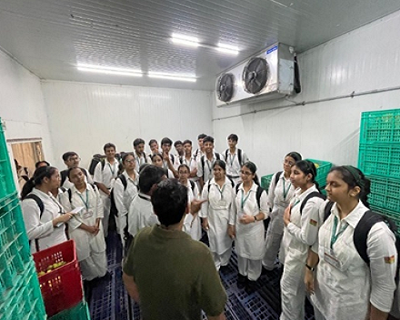
14 May 2025
Educational trip to Vibrant Tapestry of Bazaar Samiti Patna, (An Agricultural Marketing set up of Bihar)
Seminar on -‘Student Wellness and Stress Management’
A seminar on “Student Wellness and Stress Management” was recently organized for Class XI students in collaboration with the All India Institute of Medical Sciences (AIIMS), Patna, under the initiative of Community and Partnership. The session was led by Dr. Shruti Singh (Associate Professor, Pharmacology), Dr. Rajeev Ranjan (Associate Professor, Psychiatry), and Ms. Nidhi Varghese (Clinical Psychologist), and provided valuable insights into understanding, recognizing, and managing stress among adolescents. Structured around three key learning objectives—understanding stress, identifying stressors in high school, and mastering coping strategies—the session offered a holistic view of student mental wellness. Through interactive tools such as slides, true-or-false questions, real-life case studies, and hands-on activities, students were deeply engaged and encouraged to reflect on their emotional health.

The concept of stress was introduced as a natural human response to perceived threats and challenges, affecting not only the mind but also physical health, sleep, and immunity. The session addressed common myths about stress, correcting widespread misconceptions through a quiz format. For instance, contrary to some beliefs, stress does affect both mental and physical health, teenagers do experience stress significantly, and even minor issues like low grades can act as stressors. The Yerkes-Dodson Law was also discussed to show how moderate stress can enhance performance, while excessive stress is detrimental. Students explored various high school stressors, such as academic pressure, peer and parental expectations, and the impact of social media. Two case studies illustrated the spectrum of stress responses—one showing resilience despite pressure, and the other highlighting signs of emotional distress requiring intervention. This helped differentiate between normal and concerning stress reactions. The stress cycle (Event → Stress Reaction → Interpretation) and its effects were broken down into four areas: cognitive, behavioral, emotional, and physical. Signs such as memory issues, irritability, withdrawal, and sleep disturbances were discussed to help students better identify stress in themselves and peers. In terms of management, the session emphasized the “Three Rs”—Recognize, Reverse, and Resilience. Practical techniques included limiting social media usage, setting healthy boundaries, and adopting effective time management tools like the Eisenhower Matrix, time blocking, and study logs. Creative activities allowed students to express their emotions through colors and symbols, encouraging emotional literacy. Students were also guided in changing negative thought patterns through reframing, critical thinking, and the use of positive affirmations.

Lifestyle changes were advocated, such as regular physical activity, exposure to sunlight, adequate sleep, and breathing techniques like the 4-7-8 method. A mindfulness exercise based on sensory awareness helped anchor students in the present moment. Finally, the dangers of unhealthy coping mechanisms—such as substance use, social withdrawal, and binge-watching—were clearly outlined. The seminar was an impactful and credible initiative that equipped students with essential tools to manage stress. Through expert-led discussions and practical exercises, it provided a supportive space for students to build emotional resilience and navigate the challenges of adolescence with confidence.
Added on: 08 May 2025Published by: School Admin
Ⓒ Copyright 2012-2025 Delhi Public School Patna | Designed & Maintained by Edunext Technologies Pvt. Ltd.
